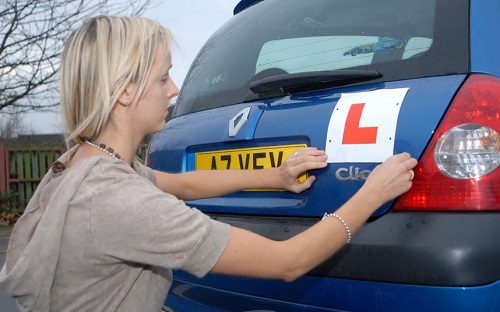The Department for Transport (DfT) has announced today (18 July) that it will explore if graduated driver licensing – or a similar scheme – should be introduced in England.
The scheme could put restrictions on new drivers, such as a minimum learning period, not driving at night, or not driving with passengers under a certain age in the car.
1 in 5 new drivers crash within their first year on the road, so any changes would be designed to help reduce this number and improve road safety.
- graduated driver licensing is being explored further in a bid to cut new driver crashes
- research will look at the impact of limiting what less experienced drivers can do in their first few months on the road
- part of the Department for Transport’s upcoming two-year road safety action plan

New drivers could face limits on what they can do on the road, to ease them into a lifetime of safe driving.
The government will commit in its road safety action plan, to be published later this week, to explore further whether graduated driver licensing — or a similar scheme — should be introduced in England.
These schemes could put restrictions on new drivers, such as a minimum learning period, not driving at night, or not driving with passengers under a certain age in the car.
One in 5 new drivers crashes within their first year on the road, and so any changes would be designed to help reduce this number and improve road safety.
Road Safety Minister Michael Ellis said:
We have some of the safest roads in the world but we are always looking at ways to make them safer.
Getting a driving licence is exciting for young people, but it can also be daunting as you’re allowed to drive on your own for the first time.
We want to explore in greater detail how graduated driver licensing, or aspects of it, can help new drivers to stay safe and reduce the number of people killed or injured on our roads.
Graduated licensing schemes already operate in New Zealand; New South Wales and Victoria in Australia; New York and California in the USA; Ontario and British Columbia in Canada and in Sweden.
Previously these schemes have been rejected due to concerns that it would adversely affect the ability of young people to get on in life — potentially restricting education and jobs.
However, conducting further research means the Department for Transport can build an evidence base to fully understand how graduated driver might work.
Currently, new drivers have their licences revoked if they accumulate 6 points within the first 2 years — equivalent to points for using a handheld mobile phone while driving or 2 speeding offences.
The government changed the driving test in December 2017 to reflect modern-world driving conditions, including adding a satellite navigation section.
Learner drivers are now also allowed to travel on motorways with an approved driving instructor to acclimatise new drivers to these roads.
Motorcyclists in the UK have a similar scheme to graduated driver licensing as young bikers are restricted to less powerful bikes.
Any changes to licensing will be consulted on before being introduced.
This information has been taken from the following Website https://www.gov.uk/government/news/government-looks-at-steps-to-make-new-drivers-safer
